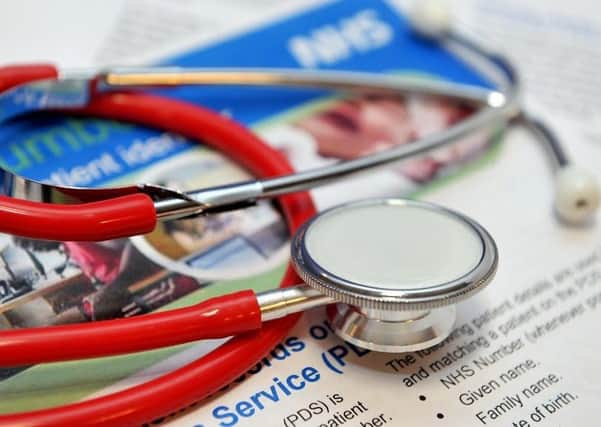GPs '˜could miss vital patient details in busy winter months'


Professor Helen Stokes-Lampard, chairwoman of the Royal College of GPs (RCGP), told the Press Association doctors are “worried” over what they could have missed.
Some are also “playing it safe” by referring patients for unnecessary tests as they work against seasonal pressures.
Advertisement
Hide AdAdvertisement
Hide AdShe said in a recent day in practice she had more than 100 contacts with patients.
Meanwhile, a survey of more than 1,000 GPs working in England found 89% feel their workload increases in winter compared to other times of the year.
More than four in five (81%) of GPs feel like their workload affects their ability to provide care for patients over the winter.
The RCGP also urged people to “self-care” as winter pressure takes its toll on general practice.
Advertisement
Hide AdAdvertisement
Hide AdNot only should they take steps to care for themselves, such as ensuring they have enough routine medication and keeping basic first aid items in the home, they should also do this for their neighbours and other people in the community, Prof Stokes-Lampard added.
The survey of 1,094 GPs found 55% of GPs feel there is enough information available to patients about what to do if they feel unwell in winter.
“From a doctor’s point of view, it is incredibly stressful,” Prof Stokes-Lampard told the Press Association.
“It’s horrible knowing that all these patients want and need us yet we’ve only got one pair of hands.
Advertisement
Hide AdAdvertisement
Hide Ad“The thing that causes the greatest stress is not being able to do a safe job, a good job.
“We are highly trained healthcare professionals who want to do the best job we possibly can - that’s why we get out of bed in the morning - but to feel at the end of the day that you haven’t done a good enough job or a safe enough job, or that you might have missed something, is incredibly stressful.”
She added: “Amazingly, the evidence doesn’t show much harm at the moment but we worry about what problems we are storing up for the future: ‘What have I missed today that could matter in the future? Have I missed something in an important letter from the hospital?’
“Because if a hospital consultant sends me a three-page letter and on the final page there is an important throwaway comment about ‘by the way I found a funny lump would you be so kind as to refer that on’ it’s really easy to miss that sort of thing if you are rushing.
Advertisement
Hide AdAdvertisement
Hide Ad“If I double-click something I could skip past a whole result without actually seeing it and if I’m tired and stressed I might not even know I’ve done it.
“It’s the unknowns that worry us and obviously they are more likely to happen when you are tired and stressed and rushing.
“When GPs in particular are stressed and rushing they tend to play it safe, and playing it safe often means arranging tests just in case, referring people to hospital just in case and giving drugs just in case.
“And that actually increases cost and pressure in the whole system overall. But we can cause unintended harm by doing tests that aren’t appropriate for that person.”
Advertisement
Hide AdAdvertisement
Hide AdStocking up on routine medications and basic first aid items such as plasters and antiseptic could help people avoid unnecessary trips to A&E or the GP surgery, she added.
Meanwhile, they can also help those around them by ensuring they have done the same.
The Lichfield GP added: “Is it something practical like lending a hand to offer to get their medication in?
“Is it something like when somebody has a slip or a trip, when the ambulance arrives actually just popping out to say: ‘Is there anything I can do to help?’
Advertisement
Hide AdAdvertisement
Hide Ad“Sometimes all people need is for someone to check on them in a couple of hours’ time and the paramedics are forced to take someone to hospital just because there is no one there just to check in on somebody two hours later.”
Last year, the RCGP launched its “three before GP” campaign, which urged people to questionif they could self care, find help or advice from reputable sources such as NHS Choices or whether their ailment could be dealt with by a pharmacist before contacting their GP.